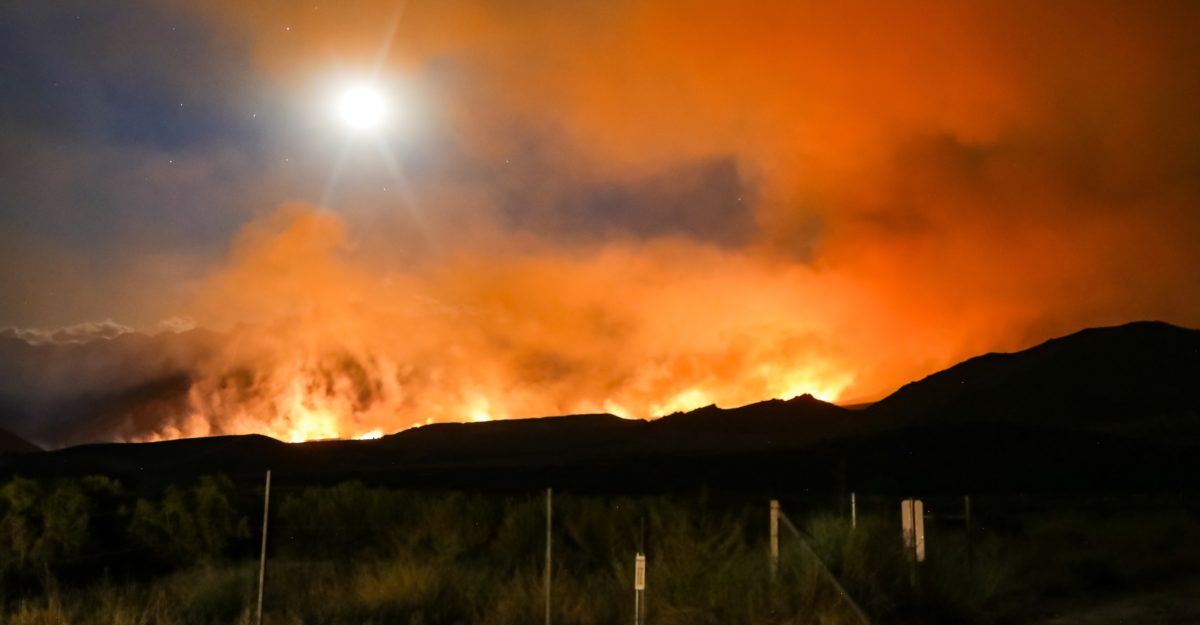Lost your job due a natural disaster? Here is what you should know

What happens if the business you work for is damaged or destroyed due to a natural disaster and you can’t go to work? Do you have to work if you think that dramatic events have left your workplace or the environment completely unsafe to operate in? Is there financial assistance if you lose your job due to an emergency or disaster?
We will answer some of the most important questions about what to do if you lose your job or are exposed to risk due to a natural disaster, and where you can turn for help when it does happen.
WATCH: Employment lawyer Alex Lucifero, partner at Samfiru Tumarkin LLP, spoke to CTV News about rights for workers impacted by severe flooding.
Can my employer fire me if I can’t work due to a natural disaster?
Employment regulations protect employees from being terminated arbitrarily without notice. If you can’t make it to work because of a natural disaster, it is your employer’s responsibility to consider the circumstances and treat you fairly. However, if your employer does decide to let you go, you are still entitled to a severance package.
If you have been terminated without any notice or severance pay, speak to an employment lawyer immediately. An employment lawyer can secure more severance than if you took your issue to the provincial regulatory body in charge of mandating employment standards. Don’t waste your time with red tape – call Samfiru Tumarkin LLP and get what you’re owed.
Am I owed severance pay if I lose my job due to a natural disaster?
If you are fired or lose your job due to the impact of a natural disaster, you are entitled to severance pay. Employers are not allowed to terminate employees without first providing adequate notice or a full severance package.
You should talk to an employment lawyer at Samfiru Tumarkin LLP to help you negotiate the proper amount of compensation. We can inform you of your rights and, if necessary, help you get the financial support you are legally owed.
Do you have to continue working if your workplace environment is completely unsafe?
All employees across Canada have a right to a healthy and safe work environment. They can refuse to work if conditions put them or someone else in danger. The exception to this is police officers, firefighters, health care workers, and correctional staff – any situation where refusing to work would put another person in danger.
If the situation needs to be investigated, workers have a right to be compensated at their regular rate. The law protects employees from reprisal if they refuse to work because it would put them in danger.
Can my employer force me to work outdoors if there is severe air pollution?
If you have safety concerns due to extreme heat or air pollution, you first need to address the issue with your supervisor or employer. Your employers have a duty to keep you safe. Similarly, if you suffer from a health condition, your employer has a duty to accommodate any changes to your work that are required for medical or safety reasons.
If your employer does not act to reduce the risk to yourself or other employees, regardless of the source of the risk, you can present your concerns to the appropriate government body:
- If you work in Ontario: You should take the issue to the Ministry of Labour by calling or filing a complaint online.
- Workers in Alberta: Individuals working in Alberta can reach out to Occupational Health and Safety.
- Employees in British Columbia: If you work in BC you can alert the authorities by contacting Health & Safety Assistance at WorkSafeBC.
Can my employer force me to work outside if it’s too hot?
Employers have an obligation to take precautions and ensure the safety of workers, including protecting employees from the effects of heat stress. This includes taking measures to reduce the incidence of heat stress and heat exposure. Employers should accommodate employees working in hot temperatures. This can be done by providing more frequent rest breaks, cold beverages, limiting strenuous activities, and creating shade where possible.
While there does not exist specific legislation around temperature limits for the purpose of performing work, the Threshold Limit Values (TLV) for heat stress have been adopted in many industries as exposure limits to determine maximum allowable temperatures for working environments, and to determine if a threat of heat stress exists for workers. For example, moderate work with a 75-100% work/rest cycle should not be performed at temperatures higher than 25 degrees Celsius.
READ MORE
Refusing dangerous work in Alberta
Filing a workplace health and safety complaint in Ontario
Refusing unsafe work in BC
Is there financial assistance if you lose your job due to an emergency or disaster?
The various provinces across Canada provide financial assistance to workers who are affected by an unexpected disaster.
Ontario Programs Designed to Help You
Declared Emergency Leave
If the Province of Ontario or a municipality declares a state of emergency, employees are entitled to take 10 days of job-protected Declared Emergency Leave, if the emergency prevents an employee from performing their job, or if the employee needs to provide care to a family member affected by the emergency.
Since the start of the COVID-19 pandemic, an emergency has been declared 3 different times in the last 2 years. This was also called the Infectious Disease Emergency Leave, which allowed employees to take 10 days of job-protected leave, or 14 days if they were quarantining after either testing positive for COVID-19 or because they were exposed to someone who tested positive to COVID-19.
Disaster Recovery Assistance
Financial assistance is also available through the Disaster Recovery Assistance for Ontarians (DRAO) to help recoup the costs of damage to property due to a natural disaster. The program, which is administered by the Ontario Minister of Municipal Affairs and Housing, offers financial assistance to:
-
- Individuals
- Small business owners
- Farmers
- Not-for profits who need help covering costs of cleaning, repairs or replacing property to help them recover after a natural disaster.
In the event of a natural disaster (i.e. flood, landslide, tornado or earthquake) the province activates the program. If you are eligible, you could receive financial assistance for costs resulting from emergencies.
- There is also increased assistance available for low-income families. Once the program is activated, you can receive assistance by applying through the government, as well as provide supporting documentation, such as proof that your property is damaged as a result of a natural disaster. You can find the complete guidelines here.
MORE RESOURCES
Red Cross Emergency and Disaster Services for Ontario
Alberta Programs Designed to Help You
The Disaster Recovery Program
Run by the Alberta government, the Disaster Recovery program helps individuals with the costs of rebuilding after a disaster, but it only assists with uninsurable losses.
For example, in Alberta it is still very difficult to get insurance for overland flooding, so typically they will cover a portion of the costs associated with recovering after major flooding. It does not provide financial assistance to rebuild insurable possessions, like a home. Similarly, the Disaster Financial Assistance and Recovery Support program can help with financial benefits after a disaster is declared in a community.
Additional Resources
• Alberta Income Support program supports individuals after job loss
• Alberta Emergency Financial Assistance
• Red Cross Emergency and Disaster Services for Alberta
• Alberta Labour and Immigration Services – Guide on How to Recover After Job Loss
British Columbia Programs Designed to Help You
Disaster Financial Assistance
After a natural disaster, the BC provincial government may declare that residents are eligible for Disaster Financial Assistance. This program provides financial support to individuals, small business, charities, and operating farms who need financial assistance.
Emergency Support Services
If you live in British Columbia and you were forced from your home due to a natural disaster such as wildfires, flooding, an earthquake, or other emergencies, you can get short-term assistance through Emergency Support Services. This includes temporary housing, food, clothing, as well as psychological supports.
Additional Resources
• Provincial Crisis Supplement
• Red Cross Emergency and Disaster Services for British Columbia
• Emergency Preparedness, Response & Recovery in British Columbia




